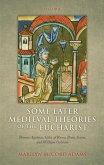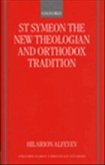A wide-ranging study of baptismal symbolism in the early Church, taking as its starting point Arator's "Historia Apostolica", a commentary in verse on the Acts of the Apostles, written in Rome in AD 544. Baptism is a major theme is Arator's poem and his ideas are here traced back to their origins.
Baptism for the early Christians was a subject of crucial importance, and its symbolism fired the imagination of writers throughout the Christian world. Arator, the Roman subdeacon who wrote a verse-commentary of the Acts of the Apostles in 544, was no exception. The Historia Apostolica is a work of historical significance. Written at a time of crisis, politically and theologically, it is of interest as propaganda for a papacy under threat from Constantinople. But Arator's concentration on baptismal themes also offers vital evidence of the transmission of exegetical ideas in late antiquity. This book is the first major work on Arator in English and the first ever to study the Historia Apostolica as biblical commentary. Passages of particular baptismal importance are presented both in the original Latin and in a new translation, and considered in the context of the writings of earlier Christian commentators. In short, this is a wide-ranging study of the popularity and potency of baptismal symbolism in the first six centuries AD.
Hinweis: Dieser Artikel kann nur an eine deutsche Lieferadresse ausgeliefert werden.
Baptism for the early Christians was a subject of crucial importance, and its symbolism fired the imagination of writers throughout the Christian world. Arator, the Roman subdeacon who wrote a verse-commentary of the Acts of the Apostles in 544, was no exception. The Historia Apostolica is a work of historical significance. Written at a time of crisis, politically and theologically, it is of interest as propaganda for a papacy under threat from Constantinople. But Arator's concentration on baptismal themes also offers vital evidence of the transmission of exegetical ideas in late antiquity. This book is the first major work on Arator in English and the first ever to study the Historia Apostolica as biblical commentary. Passages of particular baptismal importance are presented both in the original Latin and in a new translation, and considered in the context of the writings of earlier Christian commentators. In short, this is a wide-ranging study of the popularity and potency of baptismal symbolism in the first six centuries AD.
Hinweis: Dieser Artikel kann nur an eine deutsche Lieferadresse ausgeliefert werden.








